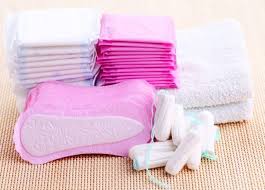
Remove financial barriers on menstrual products
A Water and Sanitation Diplomat for Schools in Ghana, Maame Akua Ohenewaa Gyimah, has appealed to the government to remove financial barriers that prevent girls from getting access to menstrual products.
She also called on the government to provide free or subsidised menstrual products for girls in order to end period stigma.
Advertisement
Ms Gyimah, who is a student of the Dawhenya Methodist B Junior High School, made the appeal when members of the Network of Professional Women in Water, Sanitation and Hygiene (WiWASH) marked this year’s Menstrual Hygiene Day with an educational programme on menstrual hygiene and donation of sanitary materials to some girls in Ashaiman.
Menstrual Hygiene Day is celebrated on May 28 every year. The celebration is to create a world where every girl and woman manages menstruation and its related issues without a speck of shame.
“Together let’s create an environment where girls feel comfortable to discuss their periods openly and seek help when needed,” Miss Gyimah said.
As part of activities marking the day, members of WiWASH donated sanitary materials including 24 boxes of sanitary pads, gallons of liquid soap, boxes of carbolic soap, and bundles of toilet and paper towels to about 300 pupils in the Ashaiman Church of Christ School, Ashaiman A and B Presbyterian Schools to support their menstrual hygiene management.
Health officials from the Ashaiman Polyclinic also educated the learners on the effective use of sanitary pads. Menstruation and its management are a challenge to many women and girls.
Studies have found that inadequate sanitary facilities have adverse effects on girls’ experience at school, causing them to miss classes during menstruation or drop out altogether.
According to Miss Gyimah, menstrual hygiene was not just a personal matter but a human right, stressing that every girl and woman has the right to access clean water, safe sanitation facilities, and the materials needed to manage their periods safely.
Additionally, she called on all to intensify peer education in order to remove the myths and misconceptions surrounding menstruation.
The Secretary of WiWASH, Ms Solace A. M. Akomeah, said in general, girls in developing countries were reported to miss up to five days of school per month when they menstruated because of period poverty.
She said if girls continued to miss school for several days a month because of menstruation, it would be impossible for Ghana to achieve the Sustainable Development Goal (SDG) 4, which seeks to ensure inclusive and equitable education for all.




